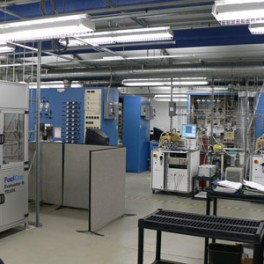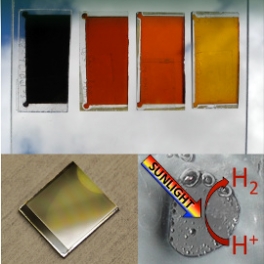Fuel cells produce electricity through the electrochemical reaction of hydrogen and oxygen (or air). Fuel cells enjoy higher efficiencies than internal combustion engines, produce little or no emissions, offer fuel flexibility, and generate little noise. High efficiency fuel cells are well suited to meet the demands for distributed power generation and commercial transportation applications. Fuel cell technology also holds immense potential for military applications, including propulsion systems for unmanned undersea and aerial vehicles, portable fuel cell systems for mobile warfare, power for fleet vehicles and weapon systems, and reliable digital quality power for critical operations. In spite of the immense promise of proton exchange membrane fuel cells (PEMFCs), issues such as durability, reliability, cost, and integration of stacks into reliable power systems need additional development if the promise is to be met.
In keeping with its mandate to develop alternatives to imported fossil fuels, the Hawai‘i Natural Energy Institute (HNEI) within SOEST has established a major fuel cell research and development program. This effort builds on HNEI’s highly successful research on hydrogen production from renewable resources and bolsters the State of Hawaii’s goals of reducing its heavy dependence on imported fossil fuels for electricity and transportation.








